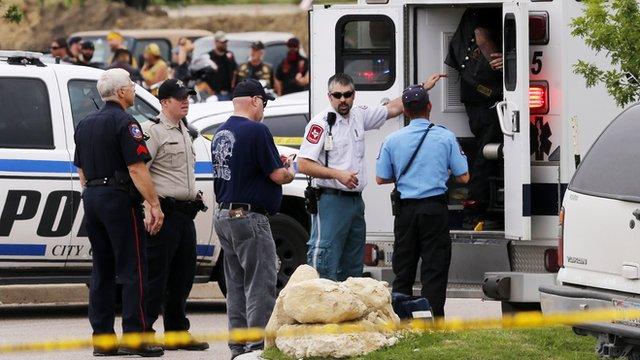An informant's life inside US biker gangs
- Published
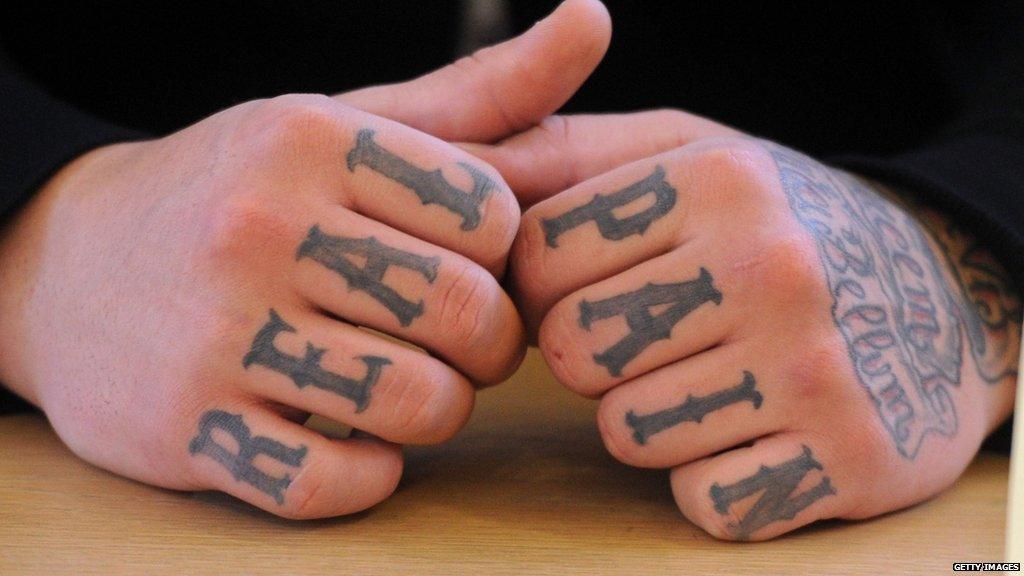
The recent gun battle in Texas has put a spotlight on violent biker gangs in the US. Charles Falco is a former government informant who has infiltrated some of America's most notorious biker gangs and now lives in hiding. He shared what it is like inside some of these deadly gangs and what spurred Sunday's violence.
Why do they fight?
Unlike gangs in Europe or Canada who largely hold territory so that they can control the illegal drug markets in that area, US gangs see holding territory as an end in-and-of-itself.
"They're very territorial," Mr Falco said. "It's all over claiming territory or states".
The Bandidos, one of the gangs involved in the shootout on Sunday, control Texas as part of their group's territory, he said.
Members of other gangs can usually pass through or even live in Texas with little trouble, as long as they do not sport a Texas "bottom rocker" - a patch on the lower part of a biker's vest that shows which state the gang member is claiming.
The Cossacks, who were also involved in the shooting, started as a family biker club, he said. Over time, however, their ranks grew and they began wearing the Texas bottom rocker in an act of rebellion against the Bandidos.
"It's just to say they're the biggest gang on the block," Mr Falco said. "They want to keep expanding, and growing, and claiming that area as their own, and kicking out the other biker gang that might control that area."
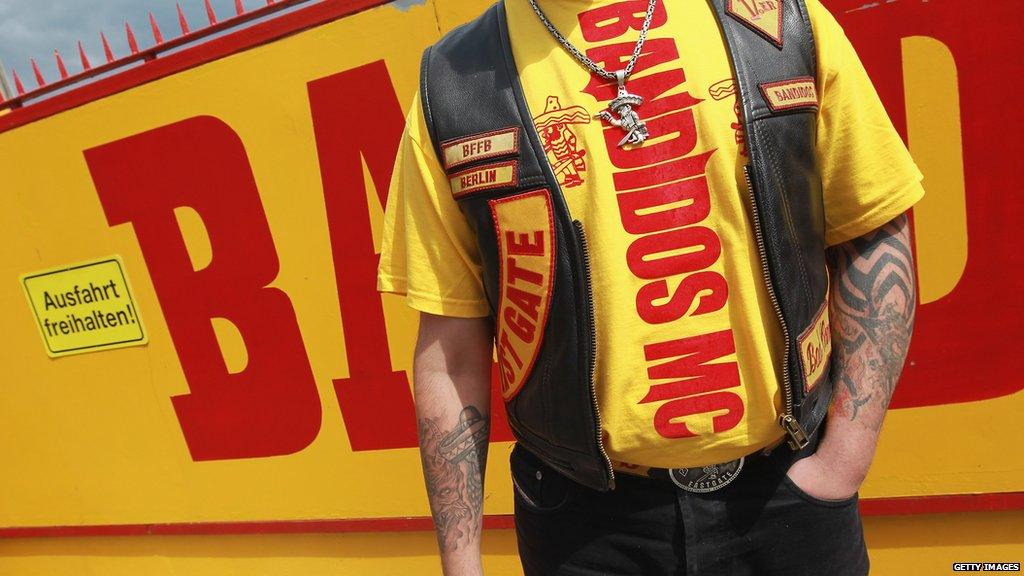
The Bandidos were formed in Texas, but have spread overseas to places like Berlin
Who joins and why?
Mr Falco said that a lot of the violent gang members were formerly in the military, and the gangs themselves have strict military-like features.
"A biker gang is highly structured - military style structure - with a ton of rules, regulations, and built as a war machine".
The men who make up these gangs are usually older and have better training in fighting than members of other types of gangs.
"They're much more sophisticated in turning out a war," he said. "A lot of these clubs started - were World War II vets or Vietnam vets - and now a lot of clubs have started based around guys returning from Afghanistan and Iraq. So you're having an influx of new biker gangs."
The Bandidos are no exception and formed in Texas during the Vietnam War era.
Mr Falco said joining or creating a biker gang allows a small set of "anti-social" veterans who "love-war" to live out their combat fantasies.
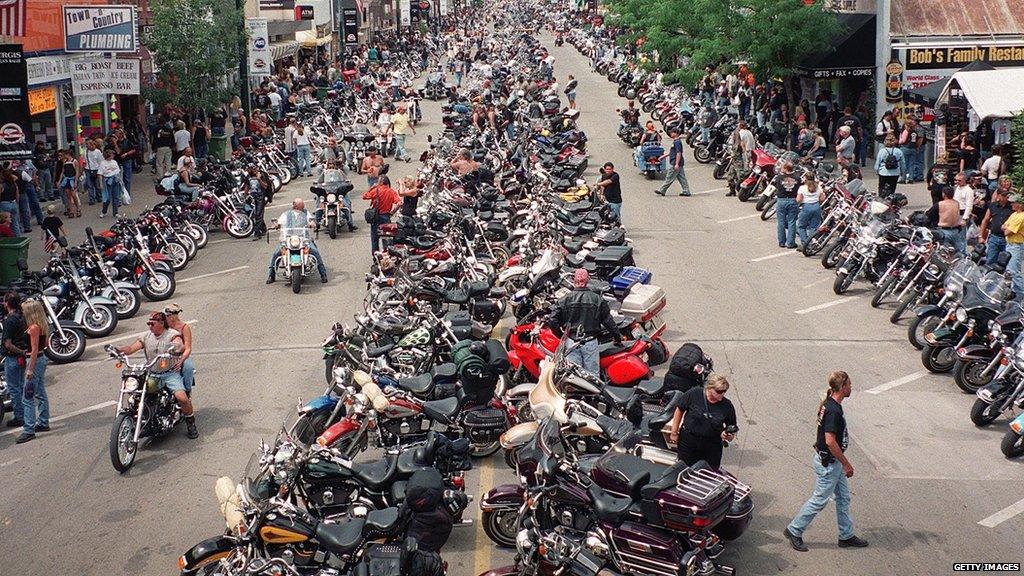
How do you join?
Joining is not quick or easy. The exact process of initiation varies in length and procedure from gang to gang, but they usually require inductees to go through several steps to prove their loyalty, according to Mr Falco.
The current gang members often invite newcomers - called hang-arounds - to their club houses and parties. At these parties the newcomer is expected to serve drinks and carry out other menial tasks to show their loyalty. Overtime, as trust is built, the hang-around is made a prospect.
"When you prospect you get the vest, but you only get the bottom rocker," Mr Falco explained. "You don't get the patch or anything that says the name of the club."
The prospect is still required to conduct many of the humiliating tasks that newcomers are required to do, but wearing the vest allows current gang members to see how the prospect conducts himself while in uniform.
"They're going to see how you deal with the police," he said. "Once you start wearing those vests... the cops are going to start messing with you."
After further trust building, the prospect becomes a bonafide gang member. The exact procedure for this transition varies between gangs, with some requiring a consensus vote by all members and others needing only local validation.
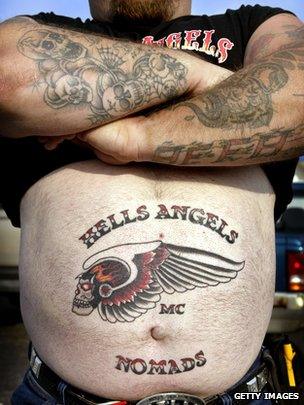
What is it like on the inside?
While many seek the comfort and security that gang affiliation might purport to provide, inductees often find that gang membership brings on a new set of insecurities.
Vigilance is constantly required, Mr Falco said. Members keep tabs on rival gangs and on potential moles within their own ranks. Betrayal and backstabbing run rife, as members compete for power both within the gang and against other gangs.
"They're jockeying for power, one minute you have power, once you lose it everyone leaves you," he said.
"Some of the guys are very likable, some of them have generosity towards each other, and you think 'Oh that's really nice'," he said. "In reality that's all for themselves, so that they have that power, so that they have that belonging."
- Published18 May 2015

- Published18 May 2015
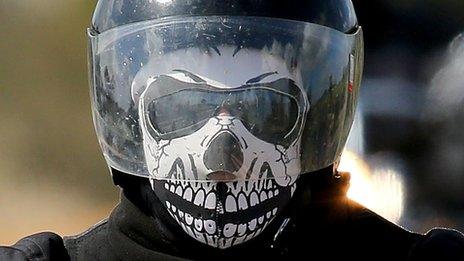
- Published18 May 2015
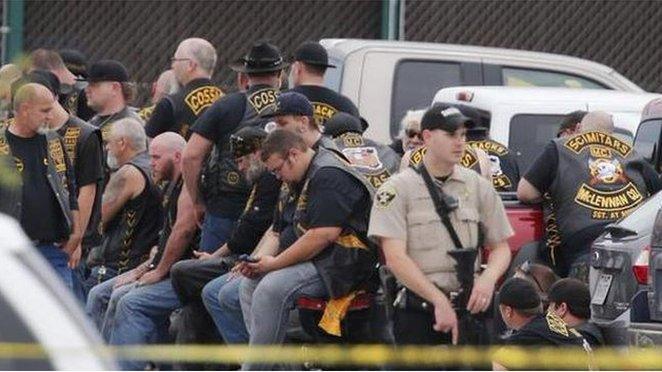
- Published18 May 2015
